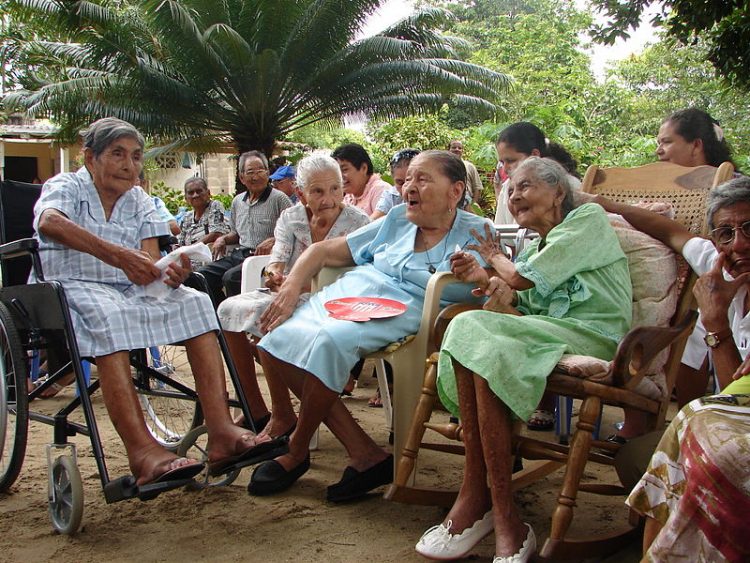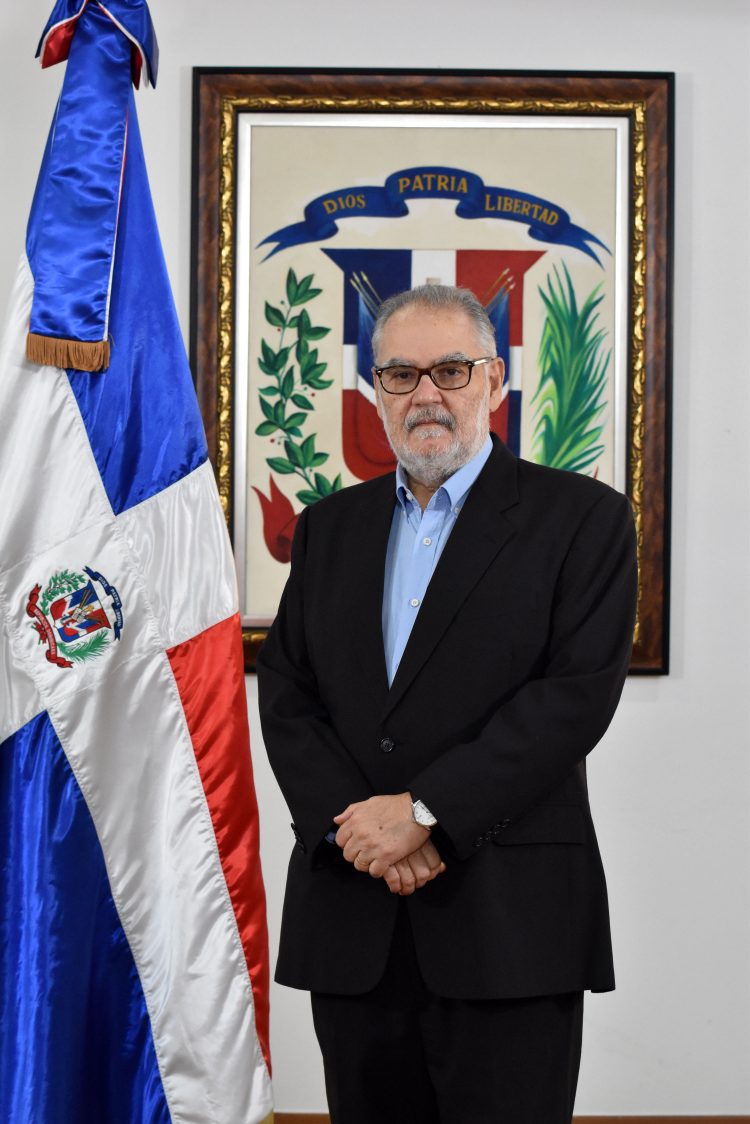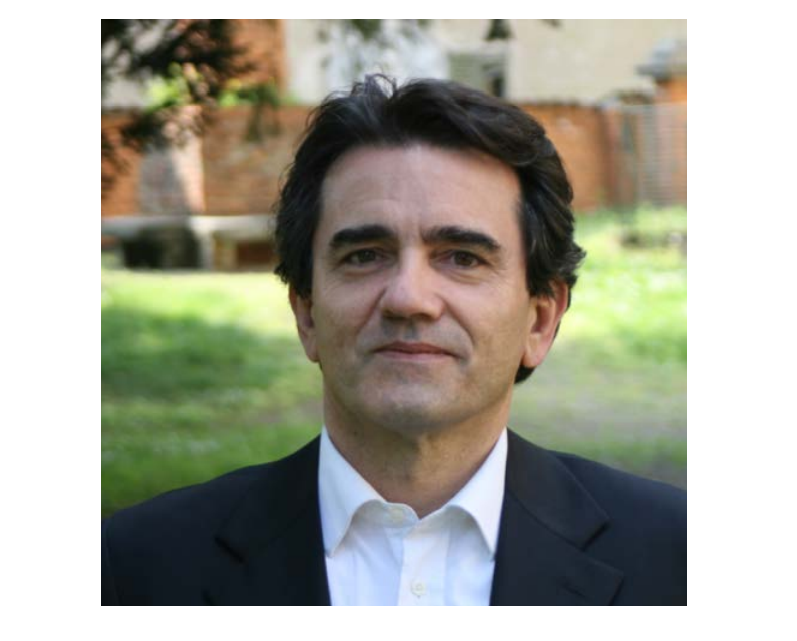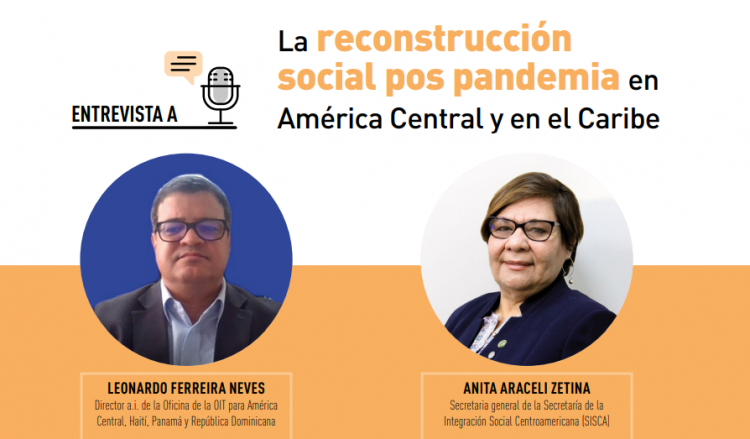By Lourdes Bermejo García, Dra. Educational Sciences, graduate in Social Gerontology, Vice President of Gerontology of the Spanish Society of Geriatrics and Gerontology (SEGG) and consultant for EUROsociAL (1)

We find ourselves, because of the pandemic caused by Covid19, facing a very complex health and social situation that seriously affects people’s health, especially those who, due to their age or health condition, are more vulnerable. A reflective analysis of the responses and their results in Europe, where the pandemic arrived early on, allows us to draw lessons learnt which can be very useful in other countries where it has just arrived or will do so later.
There are two areas in which effective action is essential in relation to older people and those who need support and/or care: residential or long-stay centres, and day centres and/or support services in the community environment (home care and telecare). In order to support the countries of Latin America and the Caribbean to mitigate the impact of COVID-19 on the elderly, the European Union through its EUROsociAL+ Programme, together with the Inter-American Development Bank, the French Development Agency and the Secretariat for Central American Social Integration developed two webinars in April (2) and May 2020 [3] that enabled an important exchange of experiences and lessons learnt between the two regions.
After sharing these experiences, we can identify 5 improvement axes, of a systemic nature, that have been shown to improve the approach to the crisis.
The first refers to the need for optimal political/administrative governance that is based on scientific and ethical knowledge. Interdisciplinary scientific knowledge of professionals and different scientific associations (epidemiological, health, social that cover the different situations and needs of citizens, economic, etc.) and ethical knowledge, which weighs up the consequences of decisions without forgetting rights and social values. As knowledge does not know what “watertight compartments” are, when such scientific and ethical knowledge has not been available, worse decisions have been made and the management of this crisis is worse: resulting in more people dying and more suffering for the whole population.
The second, essential vertical and transversal coordination: between Social Services or Care and Health Services; and between levels of the Administration. This capacity for real and effective dialogue and cooperation has been and continues to be one of the great challenges that different States are having to face.
The third would be to make the right decisions at the right time. A challenge for public administrations that have difficulty giving quick answers and answers that have also been well considered and agreed upon. A good immediate measure may be ineffective a few days or weeks later. The spread of the disease does not even pay lip service to the rhythm of excessive bureaucracy which is common in many Public Administrations. This agility should not imply the simplification of views, experience tells us that it has been a mistake to design committees of experts without having the disciplinary views necessary for a comprehensive approach to a situation that affects all dimensions of a person, and that has minimised its negative effect on people with very different characteristics, needs and circumstances. Furthermore, both human rights and social values must always be taken into account. In other words, the measures taken must ALWAYS have as a reference the rights and values that society considers essential. A first idea that cannot be forgotten refers to the fact that all people have dignity and deserve to be treated with equal consideration and value, and therefore, not to be discriminated against. Any devaluing messages during Covid reinforce stigmatisation and stereotyping, equating all older adults and categorising them as more fragile, incapable or not valuable. Always focusing on their situation of fragility, physical and/or cognitive dependence erodes their dignity. Another value that must be reinforced in this crisis refers to freedom, that is, that we are all free, that is, capable of making decisions for ourselves. In the management of this crisis there may be moments when all citizens have to limit the exercise of their freedom for the common good. But this cannot imply the impossibility of participating in any decisions, if people are able and willing to do so for themselves. Of course, another risk of this crisis is to regress from the achievements that each country has made in relation to equity and justice, thus, citizens cannot be discriminated against, nor be excluded, due to age, from preventive strategies or access to health resources.
The fourth axis refers to the correct and adequate execution of the agreed decisions by all the agents involved, that is, an effective single command. This is very difficult in territories where Public Administrations are highly segmented and decentralised; where governance is divided into several overlapping levels in the same territory and citizenship (Local, Provincial, Regional, State level). This administrative fragmentation usually entails an excess of regulation, which also multiplies, overlaps and slows down the implementation of measures. A limitation in normal times becomes a real problem in this pandemic.
The fifth axis, would be the active involvement and co-responsibility of the citizenship, which is very important to ensure that certain decisions, instructions and imposed obligations are fulfilled (even more so, if they generate discomfort or loss of individual rights, but which are essential at certain times of the pandemic). The best management of COVID implies promoting the creation and maintenance of solidarity initiatives, support networks, small actions, which may be led by public institutions, or also by civil society organisations or spontaneous citizen movements (of good neighbourliness). Without a strong sense of community, crisis management will fail. Achieving this requires taking care of the messages, languages, forms of participation and decision-making with the sectors and entities involved.
Management in European countries in relation to the Elderly has focused on two GOALS: to reduce the risk of contagion and minimise the damage, suffering and deterioration due to confinement or disruption of daily life. I believe that we can identify a series of lessons learnt that I would group into 7 areas and that I believe can help the countries of Latin America and the Caribbean to optimise their own strategies.
A first area to be developed refers to INFORMATION, COMMUNICATION and ADVICE. Here the contributions of scientific and ethical knowledge already mentioned are specified, being spread over sufficient and adequate documents (regulatory frameworks, protocols, practical guides, etc.) avoiding the regulatory excess that increases bureaucracy. Again for the application thereof, it will be necessary to consider if it is essential that there be a reference person in the health area to provide safe and effective technical dialogue, which is constant over time and who knows the situation and characteristics of each centre, its residents and older people who live in the neighbourhood.
Another area refers to the need to develop PLANS AND STRATEGIES ADAPTED TO EACH TERRITORY, starting from each physical and cultural reality, and with the involvement of all the public and private health and social resources. Specific territorial coordination optimises resources, as it should include initiatives of an informal or community nature, which are valuable in enriching opportunities for communication, interaction, participation, identity and a sense of belonging of the people who live in residences and the workers. Maintaining a sense of community is essential.
Of course, the management of this crisis obviously requires taking great care of HUMAN RESOURCES, both in terms of their quantity (that there are sufficient) and excellence, both in terms of health criteria and parameters, and psychosocial well-being. Giving emotional support, “caring for those who care”, requires strategies and skills that have not always been present in crisis management. Caring, now more than ever, requires a huge effort on the part of staff, and also, over a very long period of time. Taking care of the physical and mental health of professional caregivers is part of this excellent management of human resources.
Of course, it would not be possible to face this pandemic without having the necessary and sufficient MATERIAL RESOURCES to maintain bio-security. Although and unfortunately such resources have not been available in some European countries for the elderly, or for those in dependent situations and/or for those who are disabled. In fact, the shortage of protective equipment spread contagion in many residences, and not having such means available, limited or closed home care services. We will never know how many people died without receiving medication that could have helped them overcome the disease. Nor has there been enough palliative medication for those who could not overcome the disease. Proper management of the environment not only minimises risk, but also the suffering of people living in long-stay centres.
In relation to Long Stay Centres, HEALTH CARE ACTIONS have become extremely important in this pandemic for obvious reasons. Preventive and enforcement measures, treatments and other actions have required the aforementioned socio-health care coordination. Access to health centres that requires a transfer/referral system for older patients has also been key, and we know that on many occasions the decision to carry out or not carry out the latter has been taken without taking into account ethical criteria and without guaranteeing people’s rights and the mentioned social values. We have also learnt that it is essential to provide palliative care, since unfortunately we know that there are many people who will not be able to overcome a disease for which there is no remedial treatment. In these cases, it should be possible to offer palliative treatment that offers a dignified and humane end-of-life process, including, for those who do die, the ability to do so with a close relative or loved one by their side. Health care must seek the comprehensive care and well-being of people as an ever present aim, this must also be true in pandemic situations.
To finish, I would like to talk about the importance of COMMUNICATION SYSTEMS so that elderly people in isolation can maintain their links with their relatives, with each other and with the community, whether they are at home or in a residential centre. The right to information and maintainingcommunication links is essential to maintain the feeling of control of those who may feel fragile. That is why, both from centres and community services, it is necessary to be able to have as many members of staff as possible to design and develop a communication strategy that seeks personalisation and to provide security and well-being to older adults over this period of time which is so complex and difficult.
Faced with this very serious threat from Covid 19, societies, all diverse and complex, are seeking solutions. Those that employ cultural, scientific and ethical knowledge, cooperation between systems, and adequate communication will be successful in reducing the suffering of their citizens. Protecting all members of society, including the most fragile and vulnerable, is already part of our cultural baggage, built and transmitted in belief codes and ethical values.
[1] Lourdes Bermejo García has developed a YouTube channel https://www.youtube.com/channel/UCTD3tjw6T9zy-f7uaWrP-VA hosting material produced during the pandemic (documentaries with testimonies from those concerned: the elderly confined in residences and in their homes, professionals and those responsible and discussions on the major issues of the pandemic). These and other materials are available at www.lourdesbermejo.es
[2] Webinar “How to face COVID-19 in residences and day centres for the elderly”, organised by the Inter-American Development Bank (IDB) in conjunction with the French Development Agency (AFD), the European Union through its EUROsociAL+ programme and the Secretariat for Central American Social Integration (SISCA), available at: https://vimeo.com/413773457/55b8fa99c8v=_me9KioMqnM&feature=youtu.be
[3] “How to guarantee home care and telecare services for dependent people during the COVID-19 emergency”, organised by Eurosocial, the French Development Agency (AFD) and the Secretariat for Central American Social Integration (SISCA), available at https://www.youtube.com/watch?v=_me9KioMqnM&feature=youtu.be




